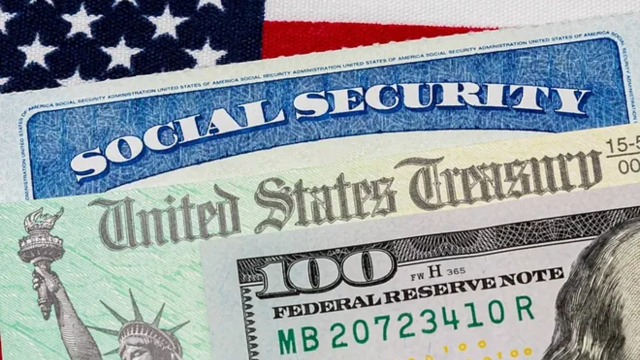If you rely heavily on your Social Security benefits, you’re not alone. Many Americans depend on these checks to cover essential living expenses. But with inflation and rising costs, even with the annual cost-of-living adjustments (COLAs), the monthly payment often falls short. That’s why recent news about a massive retroactive payment and permanent benefit increase for some seniors has sparked interest and hope.
The good news: 3.2 million Americans could soon see not only higher monthly benefits but also a one-time payment that could amount to thousands of dollars. However, this boost is not for everyone — it targets a specific group of Social Security beneficiaries under the Social Security Fairness Act.
Who is Affected by the Social Security Fairness Act?
The Social Security Fairness Act is aimed at a particular group: retirees who receive a pension from an employer that didn’t withhold Social Security taxes. This typically includes:
- State and local government workers
- Teachers
- Firefighters
- Police officers
These public servants often fall outside the traditional Social Security system due to the nature of their employment. As a result, two provisions — the Windfall Elimination Provision (WEP) and the Government Pension Offset (GPO) — were applied to reduce their Social Security benefits.
However, under the new law:
- The WEP is eliminated, meaning higher benefits for retirees who worked in jobs not covered by Social Security.
- The GPO is also removed, restoring spousal and survivor benefits that had previously been reduced or nullified.
This change is a significant shift in policy, aimed at providing fairer treatment to retirees who dedicated years to public service.
How Will Payments Be Issued?
The retroactive payments will cover benefits dating back to December 2023, and most eligible seniors should receive them by the end of March 2025. The monthly benefit increases will begin with April 2025 payments.
However, the Social Security Administration (SSA) acknowledges that not all cases are simple. For more complex cases — for instance, those with unclear or overlapping work histories — adjustments may take longer. Some people may have to wait up to a year for both the updated monthly payment and the retroactive deposit.
If you are affected, the SSA should have already sent you a notice. If you haven’t received one but think you might qualify, it’s best to wait until after your April payment and then contact the SSA for clarification.
Who Will Benefit the Most?
Though every eligible retiree will see an increase, the amount varies widely based on the type of benefit and work history. Here’s a breakdown of average increases, according to the Congressional Budget Office (CBO):
🔹 1. Retired Workers (Previously Affected by WEP):
- Average Monthly Increase: $360
- Retroactive Payment (for 2024): Over $4,300
These retirees will see a solid boost in monthly income and a nice lump sum from missed 2024 payments.
🔹 2. Spousal Beneficiaries (Previously Affected by GPO):
- Average Monthly Increase: $700
- Retroactive Payment (for 2024): Around $8,400
This includes spouses and ex-spouses who were previously denied or had their benefits significantly reduced.
🔹 3. Surviving Spouses (Claiming on Deceased Partner’s Record):
- Average Monthly Increase: $1,190
- Retroactive Payment (for 2024): Over $14,000
This group stands to gain the most under the new law, both monthly and in their one-time back pay.
These are averages — individual payouts will vary based on each person’s earnings, pension amount, and years of service.
What Should You Do Now?
If you believe you might be eligible:
- Watch for a notice from the SSA if you haven’t already received one.
- Check your April 2025 benefit payment — if it’s larger than before, the change likely applies to you.
- Contact the SSA after April if you believe you should qualify but haven’t seen a change.
- Make sure your bank account on file is current so you receive your retroactive deposit without delays.
A Long-Overdue Change for Public Workers
For years, retirees affected by the WEP and GPO argued that the reductions were unfair. Many had paid into pension systems with the understanding that they’d also be eligible for Social Security benefits through other jobs or spousal entitlements. The Social Security Fairness Act is seen as a major victory, finally acknowledging that these dual-career or public service paths shouldn’t lead to financial penalty.
The Bottom Line
The changes in the Social Security Fairness Act could mean life-changing financial relief for millions of public retirees and their families. Whether it’s a few hundred extra dollars per month or a five-figure retroactive payout, the benefit increase reflects a significant correction to longstanding inequities.
If you think you’re one of the people impacted, now is the time to pay close attention to your Social Security communications and payments. You might just be getting a surprise deposit soon — and a permanently higher income for your retirement years.
Disclaimer – Our editorial team has thoroughly fact-checked this article to ensure its accuracy and eliminate any potential misinformation. We are dedicated to upholding the highest standards of integrity in our content.




